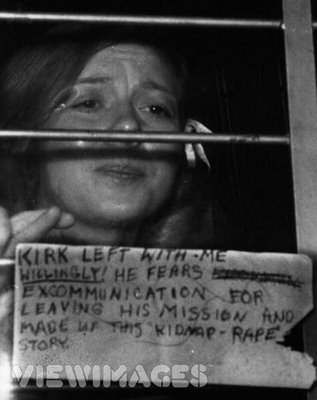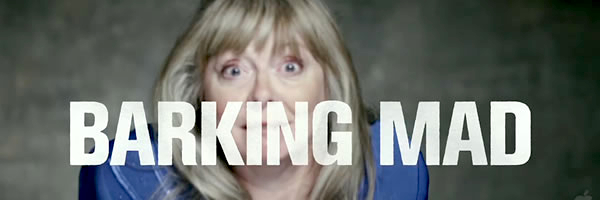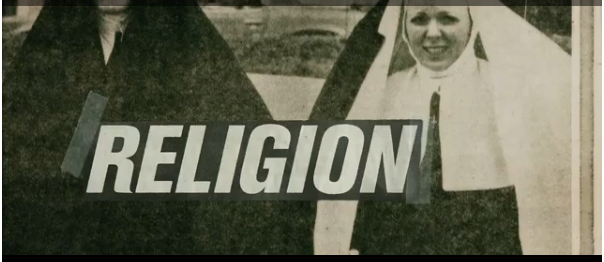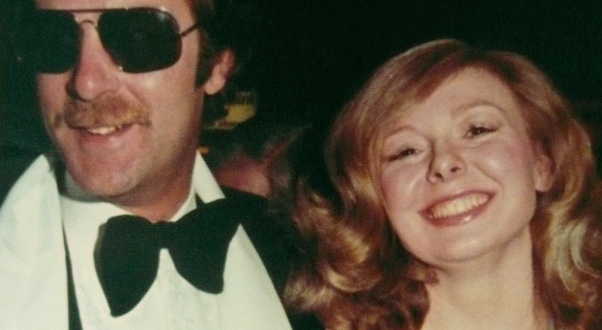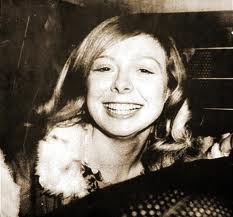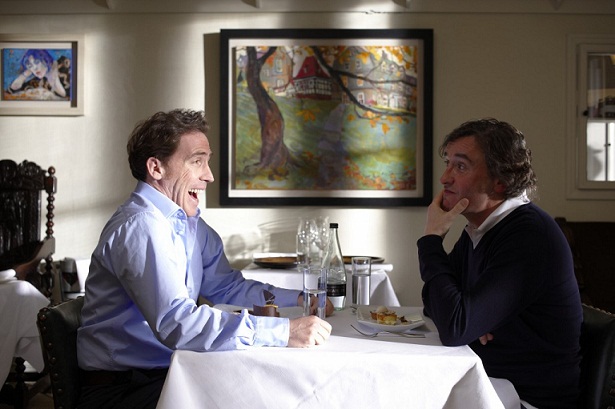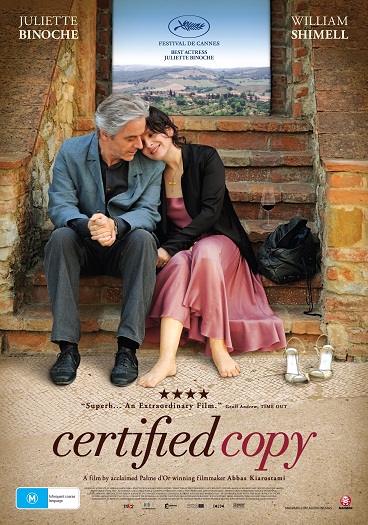Harry Potter and the Deathly Hallows--Part 2

“Our brains evolved to ‘expect’ stories with a particular structure, with protagonists and villains, a hill to be climbed or a battle to be fought. Our species existed for more than 100,000 years before the earliest signs of literacy, and another 5,000 years would pass before the majority of humans would know how to read and write. Stories were the primary way our ancestors transmitted knowledge and values. Today we seek movies, novels and 'news stories' that put the events of the day in a form that our brains evolved to find compelling and memorable. Children crave bedtime stories; the holy books of the three great monotheistic religions are written in parables; and as research in cognitive science has shown, lawyers whose closing arguments tell a story win jury trials against their legal adveraries who just lay out ‘the facts of the case’." – Drew Westen, What Happened to Obama's Passion?
I have a particulary blinkered perspective to bring to this review: this is the first Harry Potter movie I’ve ever seen. (A friend of mine who hasn't seen them either has proposed a Potter marathon; I'm up for it, mainly as a way of spending time with her.) I guess the timing of it all was off for me. If the books had come out when I was a kid, I know I'd have absolutely loved 'em. (Harry is bespectacled and British, two traits that would've endeared him to my nerdy youth.) Or if I'd had children myself, I can imagine us reading them together. Actually in the 90s I did have a young stepdaughter, and I did in fact read the first book to her. I’d act out all characters in a bid to amuse her: I recall a road trip in the late 90s where I declaimed chapters out to the car from the passenger seat. (She’ll be 21 this month. Hard to believe.) When Hagrid appeared in this latest movie there was a bit of frisson there for me: I really got into doing him. Anyway, I get that for many people these books/films are markers of the passage of time, stories they grew up with or that they shared with their kids as they grew up.
As much as I'd enjoyed my brief encounters with the stories, when my step-daughter's mother handed me my walking papers and told me to go fuck myself at the end of the last century I didn’t really feel compelled to keep up with them on my own. The last contact I had with Harry Potter was at one of our triennial family reunions when I was enlisted to read the then-current volume to my cousin’s children for their bedtime story. It was fun acting out the characters again after not having seen them for many years.
At the risk of sounding like a Muggle, though, over the years it was slightly disconcerting to observe the number of other adults hefting the current tome on the train. A lot has been written about the series' ascendancy in the wake of 9/11, how these stories offered a mass way of processing the events of the day. Sometimes there is the implication that part of the appeal of the Potter books/films was that they offered a vision of a world where good and evil was very black and white. That's exactly the sort of thing that didn't appeal to me: real life is nothing but endless shades of grey, regardless of what my man Christopher Hitchens has to say, and I hungered for a reflection of that complexity in art. (When it came to the pop-culture zeitgeist in those years, "The Sopranos" was my idea of where it was at.) To be sure, one end of the spectrum shades into the pure black of evil (the perpetrators of 9/11 are a good example, true, though for some reason I'm thinking here also of the Manson murder of the pregnant Sharon Tate), but it doesn't make for good art or commentary to go around pretending that the spectrum doesn't exist, that evil is some sort of existential condition. (As a man of literature, Christopher knows this very well, he just tends to forget it when working himself up into one of his exhilarating, elegant froths).
Actually, though, I suspect that the implication that the Harry Potter world is black-and-white does it a disservice. I give you some recent comments from the great Ralph Fiennes, reflecting on playing Lord Voldemort now that it's all over. They actually illustrate my point above very well. "How 'evil' is Lord Voldemort? He’s a demonic spirit. He’s a satanic force. Young Voldemort was an orphan and denied any kind of parental affection or love, so he’s been an isolated figure from a very young age...But I always think there has to be the possibility of good in someone, too. It might have been eroded, repressed, suppressed, or somehow distorted within him after he was really damaged...Some actors enjoy signaling the evil in characters called 'bad guys,' but you want to be a human being first of all. Everyone has the potential to be corrupted. Everyone."
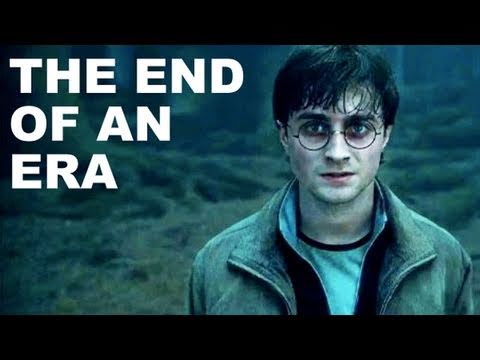
So, on to the movie. I don't really know what's going on here. They're hunting some sort of magical objects called "horcruxes" (thanks for the spelling, Wikipedia). Sometimes Lord Voldemort is able to enter Harry's mind and freak him out. It's all building toward a final apocalyptic battle and a showdown between Harry and Voldemort. Harry accepts that the harvest may very well be his own death.
As an Anglophile, I get a kick out of the Britishness of it. ("Mad" is always to be preferred over "crazy," innit?) Go to IMDB and scroll down the list of the complete cast and you'll see that it'd be easier to name the great British actors who aren't in it. I mean to say, look at whom we've got: John Hurt, always a pleasure to watch. Representatives of the Mike Leigh company like Jim Broadbent and David Thewlis. Gary Oldman and Maggie Smith. Emma Thompson for about two minutes. I could have done with a lot more of the sly Helena Bonham Carter, whose patently kooky take on villainny elevates everything she's in. Alan Rickman gives one of the most interesting performances as Professor Snape, who seems to be one of the most complex--even tragic--characters. Then we have the excellent Warwick Davis, star of the upcoming Ricky Gervais/Stephen Merchant joint, "Life's Too Short". (Love watching him interact with Karl Pilkington on the YouTubes.)
As for the three "kids," Daniel Radcliffe plays Harry with conviction and intensity, though it seems to me without a lot of charisma. He conveys the distinct impression here of a man who has had quite enough guff and does not intend to stand for any more of it. (I imagine if you've followed the series since he was little you'll get a bit of a jolt when Radcliffe pulls off his shirt to reveal a hairy chest.) Rupert Grint as Ron doesn't have much to do here, though he does get to snog a bit with Emma Watson as the brave Hermione.
The movie actually put me in mind of those “Choose Your Own Adventure” books we dug when we were kids. Remember those? I'm thinking of the one where you're exploring a mountain, sort of a Matterhorn with an inner world of caves and sheer drop-offs, maybe an abominable snowman. Make the wrong choice and you’re a goner. Make the right choice and you fly out on the back of a dragon, as Harry, Ron and Hermione do in this movie.
In the end the film was pretty much exactly what I expected. I don't mean that pejoratively, exactly: as with any other genre, when I go to a fantasy film I expressly want to be run through the litany of that story type. At the same time, with any movie I always hope to be surprised as well on some level. The only really arresting sequence for me was the one in which the trio attempts to breach security at Gringotts (thanks for the name, Internet), the wizard counting house. As we moved down that long hall where the little goblin fellas weigh and count coins, I felt the surreal tingle of peering into an alternate reality. As for the rest, the climactic battle--the seige of Hogwarts--is rousingly mounted by director David Yates, and the struggle-to-the-death between Harry and Voldemort was "exciting" enough as they careened around the outskirts of Hogwarts, though the dueling magic wands business felt a bit anticlimactic.
And so they did a really good job with this movie. As spectacular as the special effects are, though, I hope they aren't as inventive as the imagery kids have conjured up in their imaginations. For the series' great legacy is to have sparked the wonder of reading in a whole generation the way, say, "Alice's Adventures in Wonderland" or "Through The Looking Glass" or "The Wind In The Willows" did for me. And though it was never really my thing, I do understand what it means to have a series that gets you through. I need a little Wodehouse at bedtime, myself. And I know that our favorite fantasies don't just get us through a troubled world: they allow us to enter another one. Tapping into the mythic structure, quenching the thirst for the story type we humans are wired to crave, J.K. Rowling stoked the wonderful ability of children to believe in things that don't exist in this world.
Rating: ***1/2
-- September 12, 2011
Key to ratings:
***** (essential viewing)
**** (excellent)
*** (worth a look)
** (forgettable)
* (rubbish!!)


 Scott Pfeiffer
Scott Pfeiffer

